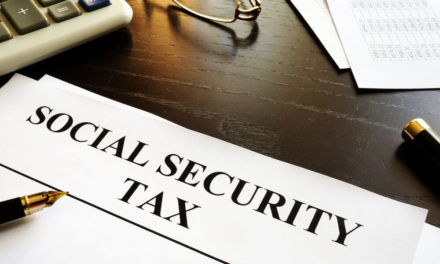Everyone should have an emergency fund to fall back on in times of crisis, but you might be frustrated by the low returns of a regular savings account. But, according to Washington Post Finance Columnist Michelle Singletary, you shouldn’t be because that’s where rainy-day money is meant to be kept safe and accessible.
Singletary wrote a column this week with financial planner Carolyn McClanahan to answer questions from readers on where to put your emergency fund money and whether you should pull out retirement money to pay off consumer debt.
Per the Washington Post:
Where should I keep emergency money? My grandmother kept her money in odd places like curtain rods.
McClanahan: Keep the money in a money market account so you earn some interest. Money markets typically provide the highest interest with the most liquidity. I would use these over plain savings accounts (lower interest) or CDs (not as liquid). The key is that a curtain rod isn’t that safe, and it isn’t earning any money. Having it in a savings account keeps it safer, and you make some money on your money.
We have $75,000 in a money market account for emergencies, like a layoff. I’m thinking of making $65,000 of that money work harder in a one-year CD at 2.85 percent APY and leaving $10,000 in the money market for fluidity’s sake. Does this make sense?
McClanahan: That is a good rate for a one-year CD, but I would make sure you have at least one month of expenses in the liquid money market so you don’t get hit with penalties if you need [to tap] that money.
I am in my 50s, married with kids who are now adults, and with about $75,000 in a savings account. I am not very savvy about financial matters, and though I have always worked and saved, I come from a culture that stresses easily accessible funds (like under your mattress!). I have only recently opened an account with Fidelity Investments and I am putting about $300 in per month (7 percent of my pay). At this point, my account is losing money, but because of my age, should I go ahead and contribute 15 percent of my pay, or should I wait until things pick up? My husband also works but is not really good at saving.
McClanahan: Keep saving! This is called dollar-cost averaging. When the market is not doing well, you are buying things on sale! Investing is a longtime proposition. Don’t look at your accounts too often, or you’ll drive yourself crazy.
I’m a retired federal employee and have never been gladder to be retired! I’m in my late 60s, and my husband is about to turn 71. We are trying to face up to aging-in-place issues. Our home, a three-story (counting basement) Colonial-style house, is not aging-friendly and can’t be made so, considering all the stairs. My husband had a health scare a few months ago, and I began to panic, thinking that if he lost mobility, what would we do? He recovered, and we are fine for now, but thinking hard about what comes next. We still like our house, but with this recent scare, we realize that situations can change in an eye-blink, so we would rather figure this out sooner rather than wait until an emergency forces the issue.
McClanahan: If your house can’t be made aging-friendly, it is important to figure this out sooner rather than later. Consider talking to an hourly financial planner to help you determine the cost of your options and if you will have the resources to meet the cost.
I’m 65 and recently retired from federal service. What should I do with my Thrift Savings Plan (TSP)? I made imprudent withdrawals in the past and have a huge tax debt along with consumer debt of about $60,000, which is about what I have in TSP funds. Should I use the remaining TSP to pay off my debt? Should I roll it over to another retirement or investment account — or use the withdrawal as a down payment to purchase a small home? I lowered my costs by moving in with family and friends temporarily.
McClanahan: You will have a huge tax bill withdrawing your TSP all at once. It will also increase how much tax you pay on your Social Security. Don’t do it! Instead, figure out how much you can take out each year in a low tax bracket. Consider working with an accountant or hourly financial planner to do this. Then create a plan to pay off your debt using your current funds and the small amounts you can take out of your TSP over time.




